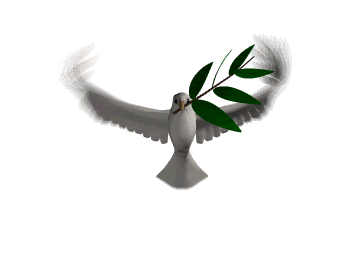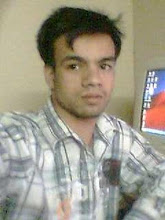The name may derive from "Qatara", believed to refer to the Qatari town of Zubara, an important trading port and town in the region in ancient times. The word "Qatara" first appeared on Ptolemy's map of the Arabian Peninsula.[citation needed]
In Standard Arabic the name is pronounced [ˈqɑtˁɑr], while in the local dialect it is [ɡitˁar].[6] In English-language broadcast media within Qatar—for example, television commercials for Qatar Airways and advertisements concerning economic development in Qatar—the name is pronounced "KA-tar", with a distinct differentiation between the syllables from the forming of the 't' sound.
Economy
 Qatar has experienced rapid economic growth over the last several years on the back of high oil prices, and in 2008 posted its eighth consecutive budget surplus. Economic policy is focused on developing Qatar's nonassociated natural gas reserves and increasing private and foreign investment in non-energy sectors, but oil and gas still account for more than 50% of GDP, roughly 85% of export earnings, and 70% of government revenues.
Qatar has experienced rapid economic growth over the last several years on the back of high oil prices, and in 2008 posted its eighth consecutive budget surplus. Economic policy is focused on developing Qatar's nonassociated natural gas reserves and increasing private and foreign investment in non-energy sectors, but oil and gas still account for more than 50% of GDP, roughly 85% of export earnings, and 70% of government revenues.Oil and gas have made Qatar the second highest per-capita income country – following Liechtenstein – and one of the world's fastest growing. Proved oil reserves of 15 billion barrels should enable continued output at current levels for 37 years. Qatar's proved reserves of natural gas are nearly 26 trillion cubic meters, about 14% of the world total and third largest in the world.
 Before the discovery of oil, the economy of the Qatari region focused on fishing and pearl hunting. After the introduction of the Japanese cultured pearl onto the world market in the 1920s and 1930s, Qatar's pearling industry faltered. However, the discovery of oil, beginning in the 1940s, completely transformed the state's economy. Now the country has a high standard of living, with many social services offered to its citizens and all the amenities of any modern state.
Before the discovery of oil, the economy of the Qatari region focused on fishing and pearl hunting. After the introduction of the Japanese cultured pearl onto the world market in the 1920s and 1930s, Qatar's pearling industry faltered. However, the discovery of oil, beginning in the 1940s, completely transformed the state's economy. Now the country has a high standard of living, with many social services offered to its citizens and all the amenities of any modern state.Qatar’s national income primarily derives from oil and natural gas exports. The country has oil reserves of 15 billion barrels (2.4 km³), while gas reserves in the giant North Field (South Pars for Iran) which straddles the border with Iran and are almost as large as the peninsula itself are estimated to be between 80 trillion cubic feet (2,300 km3) to 800 trillion cubic feet (23,000 km3) (1 trillion cubic feet is equivalent to about 80 million barrels (13,000,000 m3) of oil). Qatar is sometimes referred to as the Saudi Arabia of natural gas. Qataris’ wealth and standard of living compare well with those of Western European states; Qatar has the highest GDP per capita in the Arab World according to the International Monetary Fund (2006)[15] and the second highest GDP per capita in the world according to the CIA World Factbook.[8] With no income tax, Qatar, along with Bahrain, is one of the countries with the lowest tax rates in the world.
Aspire Tower, built for the 2006 Asian Games, is visible across Doha Sports City
West BayWhile oil and gas will probably remain the backbone of Qatar’s economy for some time to come, the country seeks to stimulate the private sector and develop a “knowledge economy”. In 2004, it established the Qatar Science & Technology Park to attract and serve technology-based companies and entrepreneurs, from overseas and within Qatar. Qatar also established Education City, which consists of international colleges. For the 15th Asian Games in Doha, it established Doha Sports City, consisting of Khalifa stadium, the Aspire Sports Academy, aquatic centres, exhibition centres and many other sports related buildings and centres. Following the success of the Asian Games, Doha kicked off an official bid to host the 2016 Summer Olympics in October 2007.[16] Qatar also plans to build an "entertainment city" in the future.
Qatar aims to become a role model for economic and social transformation in the region. Large scale investment in all social and economic sectors will also lead to the development of a strong financial market.
The Qatar Financial Centre (QFC) provides financial institutions with world class services in investment, margin and no-interest loans, and capital support. These platforms are situated in an economy founded on the development of its hydrocarbons resources, specifically its exportation of petroleum. It has been created with a long term perspective to support the development of Qatar and the wider region, develop local and regional markets, and strengthen the links between the energy based economies and global financial markets.
Apart from Qatar itself, which needs to raise capital to finance projects of more than $130 billion, the QFC also provides a conduit for financial institutions to access nearly $1.0 trillion of investments which stretch across the GCC (Cooperation Council for the Arab States of the Gulf) as a whole over the next decade.
The new town of Lusail, the largest project ever in Qatar, is under construction.
The primary means of transportation in Qatar is by road, due to the very cheap price of petroleum. The country as a result has an advanced road system undergoing vast upgrades in response to the country's rapidly rising population, with several highways undergoing upgrades and new expressways within Doha under construction. A large bus network connects Doha with other towns in the country, and is the primary means of public transportation in the city.
The Salwa International Highway currently connects Doha to the border with Saudi Arabia, and a causeway with both road and rail links to Bahrain at Zubarah is due to begin construction shortly. The causeway will become the largest in the world, and will be the second to connect Bahrain to the Arabian Peninsula.
Currently, no rail networks exist in the country. In November 2009, however, its government signed a $26 billion contract with the German company Deutsche Bahn to construct a railroad system over the next 20 years. The network will connect the country itself, and will include an international link with neighbouring states as part of a larger rail network being constructed across the countries of the Gulf Cooperation Council. A railway link is also under construction between Qatar and Bahrain as part of the Qatar Bahrain Causeway.
Qatar's main airport is the Doha International Airport, which served almost 15,000,000 passengers in 2007. In comparison, the airport served only 2,000,000 passengers in 1998. As a result of the much larger volumes of passengers flying into an through the country today, the New Doha International Airport is currently under construction, and will replace the existing airport in 2011.























No comments:
Post a Comment